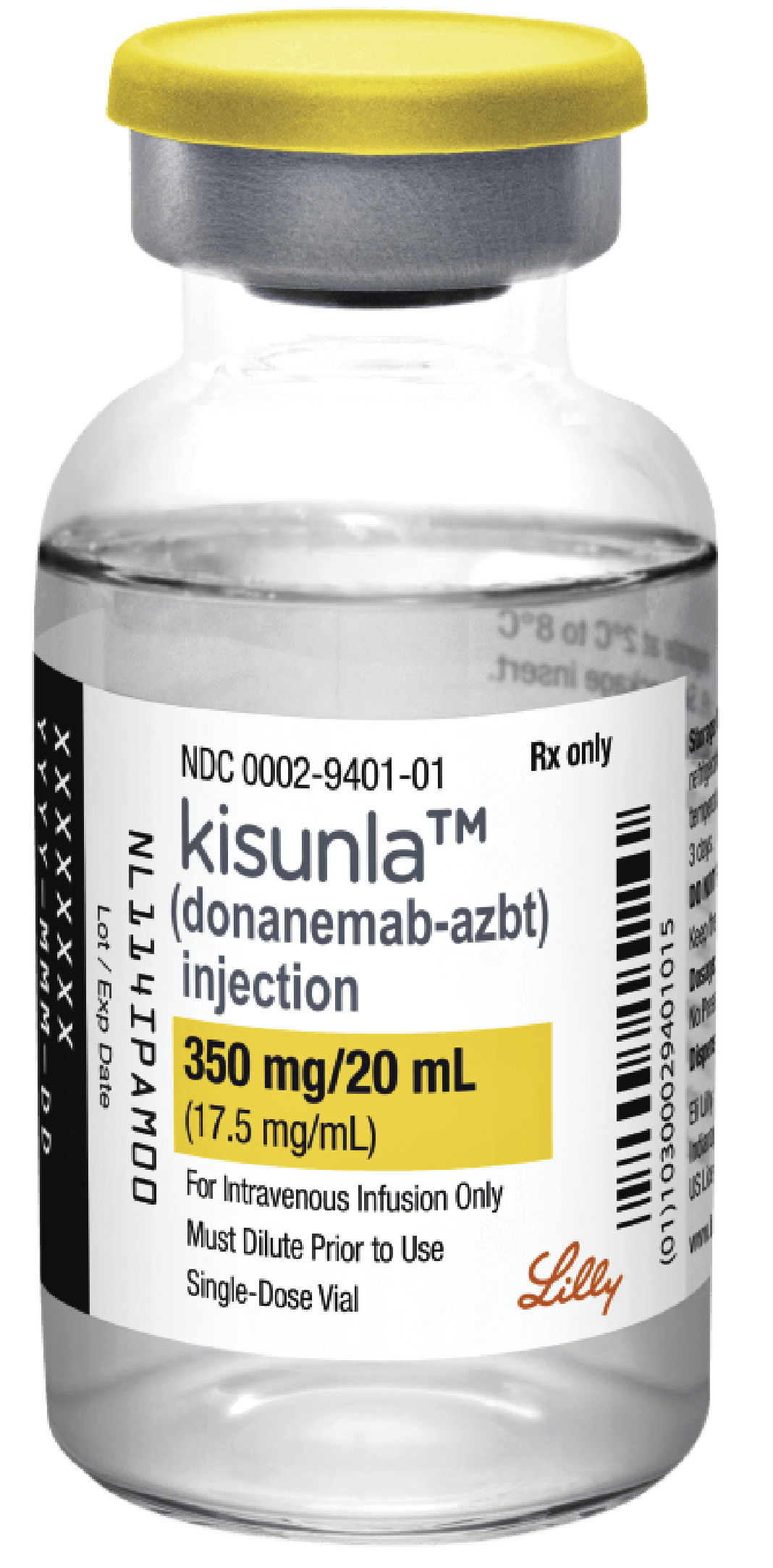In the News
PROMISING GAINS IN ALZHEIMER’S FIGHT

Another drug has joined the arsenal of Alzheimer’s treatments. The Food and Drug Administration approved a medication brand-named Kisunla after it proved effective in clinical trials when used by people in the early stages of the disease.
“The trial data demonstrated, convincingly, that Kisunla reduces the rate of cognitive and functional decline in patients in the mild cognitive impairment and mild dementia stages of Alzheimer’s disease,” said Teresa Buracchio, a director in the FDA’s Center for Drug Evaluation and Research, in a statement.
Donanemab, Kisunla’s medical name, joins similar drug Lecanemab (Leqembi) as sanctioned treatments for the disease that afflicts nearly 7 million older Americans. One difference: Kisunla is given by intravenous infusion once a month; Leqembi has a twice-a-month regimen.
Researchers found that the medication was especially effective in slowing the loss of thinking and memory skills in people in the earliest stages of the disease.
Kisunla helped to remove a protein called amyloid from the brain. In people with the disease, amyloid forms sticky plaques that disrupt normal cell function.
Jagan Pillai, M.D., an Alzheimer’s researcher at the Cleveland Clinic, called Kisunla’s approval “a huge impetus to the field … mostly because it gives [patients] a range of therapeutic options.”
Kisunla’s maker, Eli Lilly, priced the drug at $32,000 a year, higher than Leqembi’s $26,500 annual list price. Out-of-pocket expenses will depend on insurance.
Medicare will cover FDA-approved Alzheimer’s treatments for some patients who work with a health care provider who participates in a registry to collect information on the medication.
BLOOD TEST SEEN AS HIGHLY ACCURATE
A blood test is about 90 percent accurate in diagnosing Alzheimer’s disease in people experiencing problems thinking and remembering, says a study by a team of Swedish researchers published in the medical journal JAMA.
The blood test and others like it are not widely available to patients, but they could be soon. That would be a “revolutionary change,” says Paul Newhouse, M.D., director of the Center for Cognitive Medicine at Vanderbilt University.
When making an Alzheimer’s diagnosis, doctors rely on a patchwork of physical and cognitive tests and brain scans or invasive spinal taps. A highly effective blood test could save a lot of time and money, Newhouse says.
A faster diagnosis could also improve access to new Alzheimer’s treatments that are approved for patients in the early to mild stages of the disease.
Research presented at the Alzheimer’s Association’s 2024 conference this summer suggests that an accurate blood test could slash the wait time for these treatments by several years.
‘My Social Security’ Users May Face Account Changes
If you are one of the millions of older Americans who track your benefits and request services through a personalized Social Security account, you may need to change your login procedure or risk losing your account.
The Social Security Administration (SSA) announced this summer that users who set up My Social Security accounts before September 18, 2021, will be required to transition those accounts to Login.gov, a secure sign-in service administered by the federal government.
The change will “simplify your sign-in experience and align [My Social Security] with federal authentication standards” while providing “safe and secure access to online services,” SSA says.
About 46 million people who have My Social Security accounts will be affected, according to an SSA spokesperson.
My Social Security is free and available to anyone 18 or older who has a Social Security number and a valid email address. It’s useful for getting estimates of future benefits, replacing a lost Social Security card and other services.
CDC: Older Americans Need RSV Vaccine
If you are 75 or older, or 60 to 74 with chronic health problems such as heart or lung disease, the Centers for Disease Control and Prevention says you should get an RSV vaccine by early fall.
This is a change from last year, when the CDC was less urgent about the vaccine before RSV season and only advised people 60 and older to ask their doctor whether the vaccine for RSV (respiratory syncytial virus) was right for them.
For most people, RSV typically causes cold-like symptoms. In young children and older adults, however, an infection can be dangerous, even deadly. Adults with chronic heart or lung disease and those with weakened immune systems are also at high risk for complications from an infection.
The virus can cause pneumonia and worsen conditions such as asthma and chronic obstructive pulmonary disease.
The CDC estimates that RSV sends as many as 160,000 older Americans to the hospital annually and as many as 10,000 older adults die each year from an RSV infection. By comparison, during the 2021–2022 flu season, 52,872 adults 65 and older were hospitalized with influenza, and 4,115 died.
CLUELESS LEADERS

People who pick themselves to run workplace teams do worse than those chosen by lottery, says a study from the National Bureau of Economic Research. It found groups headed by often overconfident “self-promoters” performed as if they had a boss with a measurably lower IQ.